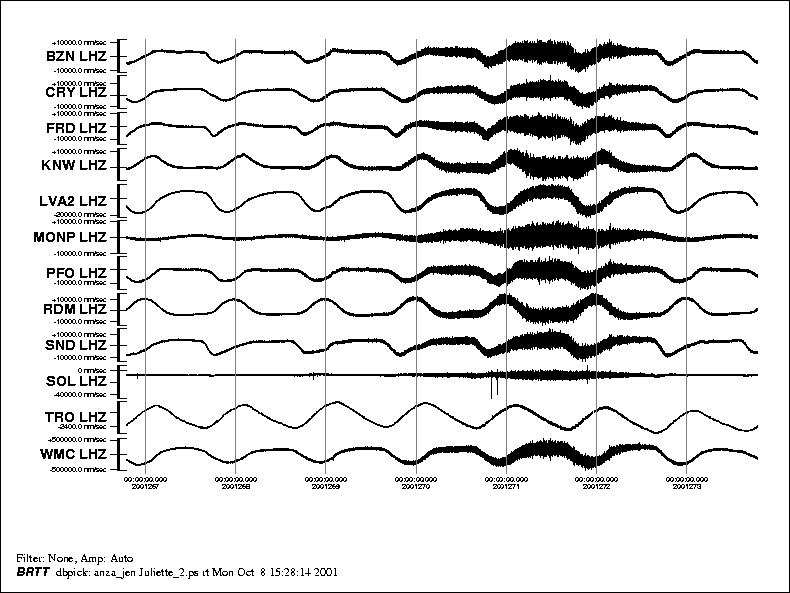|
Hurricane Julliete causes increase in seismic 'noise'
Last updated:10/08/2001 15:37:30 (PST)
The Anza group at the University of California San Diego operates
a broadband seismograph network consisting of 13 (+ 2) three component
broadband seismograph stations centered near Anza Californa.
On Friday, September
28th, 2001 we noticed that on a long time scale, the noise levels
at our seismic stations were extremely high.
Here is a plot showing the vertical component of all of the Anza stations. The
plot immediately below shows 3 days of data with the oldest data
at the left hand side of the figure. Click the image for an enlarged
view.

This next figure (from the National Weather Service/National Hurricane Center)
shows the wind strengths along the hurricane track. Note that
as the hurricane approaches Southern California the microseism
noise increases. Click the image for an enlarged view.

To view the
latest tracking data from the National Weather Service, visit
the National Hurricane Center.
Finally, here
is a plot that shows seven days of data. You see the initial data
shows a baseline signal (through julian day 2001269). The microseisms
increase as the storm approaches and/or strengthens (2001269-2001272).
As the storm weakens the microseism die out and we return to the
normal background signal (2001273). Click the image for an enlarged
view.

Dr. Vera Schulte-Pelkum
has researched other microseism events at Anza. We hope to continue
this work in the upcoming weeks using the data collected from
this event. Please see a summary
of her work on microseismis that was used in a recent proposal
for funding for the ANZA network.
Learn more about the Anza group (including
who works here, other networks, nuclear tests in China/India/Pakistan).
Learn more about the ANZA
network (includes more station information, research, etc).
URL: http://eqinfo.ucsd.edu/special_events/2002/151/a/index.html
|